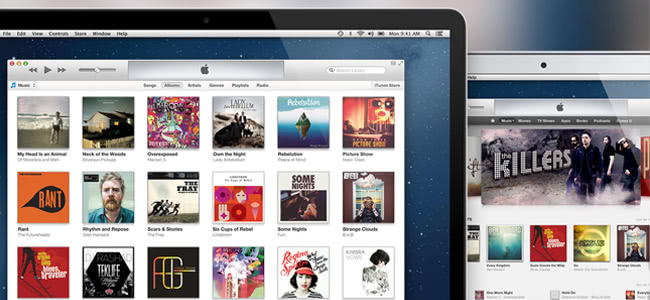While many Aussie consumers bemoan the fact that seemingly everything, from music downloads to movies, costs more in Australia, even dubbing the extra dosh we’re forced to hand over the ‘Australia tax’, their complaints have fallen on deaf ears.
As The Guardian reports, Australian consumers could soon be charged even more for music, movies, and games downloaded from overseas service providers, with treasurer Joe Hockey announcing the introduction of a goods and service tax (GST) on so-called “intangibles”.
Hockey was not able to provide a definite figure on how much revenue imposing GST on “intangibles” would raise, but said it would be worth billions. As well as music and games downloads, the tax will likely include services such as Netflix and presumably by extension, Spotify.
State and territory treasurers reportedly met with Hockey in Canberra on Thursday and tentatively agreed to support the so-called “integrity measures”. However, details on what’s been dubbed the ‘Netflix tax’ are scant.
According to the Sydney Morning Herald, the “intangibles” tax could be applied to advisory services purchased from abroad but delivered here, or they could potentially be internet-based services such as Uber.
The legislation would add 10 percent to the purchase price of iTunes downloads of songs and albums, as well as any movies rented or bought from the ever widening array of internet media companies, such as Apple TV and the recently introduced Netflix.
“There are a number of those companies that are prepared to charge the GST on the services that they are putting into Australia, but they want to know that they are not at a competitive disadvantage,” Hockey said. “Now, the states agreed in principle that we should move in that regard.”
“I see those things as integrity measures for the tax base, not a broadening of the GST or an increase of the GST,” he added. Reports indicate that the government wants the legislation drafted as soon as possible and it can be expected as part of the 2015 budget.
“There is no doubt that there would be an increase in overall revenue if the GST were to applied right across the board to the delivery of information and licensing and so on over the internet, as if it were delivered domestically,” said Hockey. “There would be an increase in the GST and, you know, it comes back into the tax net.”
However, Australians who conceal their location to download their music and movies could potentially escape paying the GST, even if it is imposed in next month’s federal budget. As SBS reports, consumer advocacy group Choice says Aussies using a VPN could avoid the GST’s purview.
Choice say that the government should focus energies on tackling the reason why so many consumers use private networks, which make them appear to be outside the country, citing the high domestic costs of consumer media in Australia.
“We need to make it easier… in order to encourage greater competition,” Choice chief executive Alan Kirkland told ABC radio on Friday.
Meanwhile, some services have already responded to the plan, with Netflix saying they will happily add GST to the cost of their service once it becomes law.




































